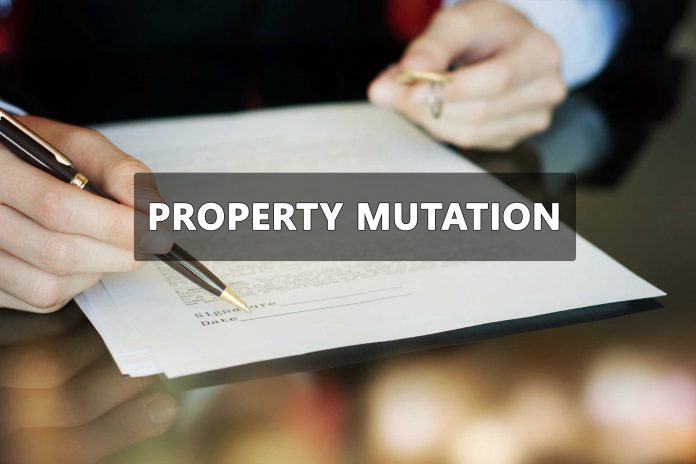This article is written by Sanjana Pandey, pursuing a Certificate Course in Real Estate Laws from LawSikho.
Table of Contents
Introduction
Buying a house is a tedious task with lots of things to be checked off the to-do list before, during and after the purchase is made. One of the things that a lot of people miss out on is getting the mutation of the purchased property done in government records. Once you have completed a real estate transaction and registered the property in your name, it is important for you to also get a mutation of property done in government records.
Mutation of a property, also known as Dakhil Kharij in Hindi, is the transfer or change of title entry in revenue records of the local Municipal Corporation showing the change in the title ownership amongst the transferor and transferee. The transferee or the new owner effects the process of mutating property records post which the property shall stand in his name and the ensuing rights and obligations shall attach to him.
Although, it is to be noted that it does not confer title onto a person as has been reiterated by the Hon’ble Supreme Court on several occasions. In the case of Bruhat Bengaluru Mahanagara Palike in January 2021, the Hon’ble Court confirmed that an owner cannot solely rely on mutation entries to prove he is the owner of a property. Additionally, in Bhimabai Mahadeo Kambekar v Arthur Import and Export Company in 2019, the Hon’ble Court established the same point, saying mutation entries of revenue records did not create or extinguish title over the land, adding that such entries did not have any presumptive value on the title of such land.
There are two types of mutations namely-
- Mutation of Agricultural Lands; and
- Mutation of Non-Agricultural lands which include apartments, residential plots, commercial plots.
The mutation of the former is mandatory without which land title cannot be passed to the owner. It is not so in for the latter but the same should be done to prevent hassles in the future with respect to the concerned property.
When does a mutation of the property take place?
As stated above, mutation is done when there is transfer in the title ownership of property. The change in ownership can be due to various reasons such as:
- Death of original owner and transfer of property to heir by will or inheritance
- Purchase of Property
- Bought property through Power of Attorney
- Receiving property as gift
- Part of Government Settlement
Why is it important?
Although Mutation Records do not confer the title of the property on the person whose name is on the records as that should independently through a declaratory suit, the importance of mutation of property can be seen going over the requirement of mutation records in different situations such as for:
- Ascertainment of ownership of land
- Updating government revenue records
- Fixing property tax liability (default on which acquires penalty)
- Applying for utilities such as water, electricity, etc and receiving the bills
- Selling of the said property in the future
- Issuing proper tax documents
In case of ownership related to land, mutation is considered a vital document. For example, if an agricultural land is acquired by the government and the registry of the land is in the name of person A while mutation is in favour of Person B, the government will release the acquisition funds in favour of Person B, as in the revenue records he is recorded as the owner of the land.
Property mutation is, therefore, a necessary formality for those who acquire property in any way and it should be done promptly to avoid any unnecessary hassles for the property owner in the future.
Relevant laws/authorities involved
The Revenue Codes of specific states regulate the way revenue is collected and one of the duties of the local municipal body of the city or district in question is to maintain the record of rights and to make mutations in the register of land records as and when needed.
A clearer understanding would be achieved by observing the provisions Maharashtra Land Revenue Code, 1966. As per section 154 of the Act, intimations of any documents purporting to create, assign or extinguish any title in respect of which a record of rights has been prepared is registered under the Indian Registration Act, 1908 is to be made to the Revenue officer (Talathi) of the village. Post which, as per section 150, the Talathi shall enter in the register of mutations every report made to him or on any intimation of acquisition or transfer or from any collector. The 7/12 extract and mutation entry in 6/12 is done by the talathi after the process is complete.
How is it done?
The application for mutation of property varies from state to state. A request for change can be done through an application form with a court fee stamp. The form must be duly filled, signed and submitted to the tehsildar or the concerned officer of the local Municipal body which maintains the land record of the said property.
Alternatively, an online application can be made for the mutation on the respective State Government portals as many Municipal Corporations have now moved towards digitization of the existing land records and of the process of mutation starting from application stage itself.
The fees for such an application are generally between Rs. 25- Rs. 100.
After submission of the application along with all relevant documents, the department would conduct a physical verification of the property.
Next, a proclamation is issued asking for objections, if any, to the proposed mutation specifying the last date (generally it is 15 days from the date of proclamation) up to which any objection to the mutation will be entertained.
The statements of parties are also recorded. The contents of the documents are matched with the recorded statements. If no objection is received against the proposed mutation, it is sanctioned.
Once all these steps are satisfied, it can take the municipal body anywhere from 15-30 days to update the record, post which you shall receive the said mutation certificate.
The purchasers of the property should ensure that their names are entered and recorded in the Property Tax bill as well as Water Charges bill. It is pertinent to note that once entry is made in the Municipal Body (City Survey) records, then steps should be taken to get the Property Tax Bill and Water Charges Bill transferred as well.
Documents required
The documents required to be submitted differ depending on why the transfer of property has occurred.
- In case property has been purchased, the following documents are to be furnished:
- The attested certified copy of sale deed,
- Latest property tax payment receipts,
- An indemnity bond on a Rs. 100 stamp paper, and
- An affidavit on a Rs. 10 stamp paper.
- In case the property has been inherited by an heir after death of owner, the following documents are to be furnished:
- A death certificate of the owner,
- A copy of the will or succession certificate,
- An indemnity bond on a Rs. 100 stamp paper,
- An affidavit on Rs. 10 stamp paper attested by a notary, and
- Latest property tax payment receipts.
- In case the property has been purchased through a Power of Attorney (POA) holder, the following documents are to be furnished:
- A copy of the power of attorney papers,
- A copy of the will,
- Receipt of payment registered with the sub-registrar,
- An indemnity bond on Rs. 100 stamp paper,
- An affidavit on Rs. 10 stamp paper attested by the notary, and
- Latest property tax payment receipts.
The penalty for not completing the mutation of the property is minimal at Rs. 25.
Conclusion
Mutation of property is the updating of the land records by the local municipal body after the transfer of ownership/title in a property from one person to another.
The process for getting the property recorded in the new buyer’s name varies from state to state but follows a general structure in that it can be done by making an application to the concerned officer (tehsildar) at the local municipal body along with the documents as elaborated above containing sale deed/death certificate/copy of Power of Attorney papers as applicable, proof of payment of property tax, indemnity bond, affidavit and other additional documents in the prescribed format.
The process involves inviting objections and physical verification of the property following which, if the body is satisfied, the mutation certificate shall be provided within a period of 15-30 days.
Although it is not a declaration of one’s title, it is important to get the mutation done as it is essential in ascertainment of property tax liability and for application and payment utility services like water, electricity, etc.
It is also essential to note that this is not a one-time process and updating the records every 6 months is imperative to ensure that no wrongful or malafide transactions have not occurred relating to the property and so no trouble is faced when the property is to be sold at a later date in the future.
References
- https://content.magicbricks.com/property-news/what-is-mutation-of-property-and-why-its-important/60616.html#:~:text=Mutation%20is%20the%20change%20of,tax%20from%20the%20rightful%20owner.
- https://economictimes.indiatimes.com/definition/mutation#:~:text=Definition%3A%20Mutation%20means%20transfer%20or,body%20for%20the%20concerned%20property.&text=Once%20it%20becomes%20a%20freehold,the%20property%20ownership%20gets%20changed.
- https://www.proptiger.com/guide/post/why-is-property-mutation-important
- https://housing.com/news/what-is-mutation-of-property-and-why-is-it-important/
- https://realty.economictimes.indiatimes.com/news/industry/five-documents-required-for-mutation-of-property/65964834
- https://www.makaan.com/iq/buy-sell-move-property/heres-what-you-should-know-about-property-mutation
- http://www.bareactslive.com/MAH/mh129.htm
- https://services.india.gov.in/service/detail/application-form-for-property-mutation-certificate-in-maharashtra
- https://economictimes.indiatimes.com/procedure-of-mutation-of-property/articleshow/6452218.cms?from=mdr
Students of Lawsikho courses regularly produce writing assignments and work on practical exercises as a part of their coursework and develop themselves in real-life practical skill.
LawSikho has created a telegram group for exchanging legal knowledge, referrals and various opportunities. You can click on this link and join:
 Serato DJ Crack 2025Serato DJ PRO Crack
Serato DJ Crack 2025Serato DJ PRO Crack











 Allow notifications
Allow notifications


